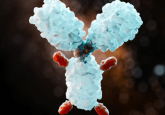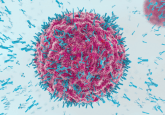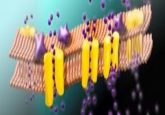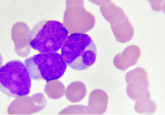Treating cancer with vitamins

Vitamin C–filled foods are the go-to when hoping to help prevent illness or speed up the recovery process. Now this vitamin may help with not only the common cold but cancer as well.

Loss of Tet2 protein function, which regulates transcription and plays an important role in blood cell production, underlies some cases of blood disorders such as acute myeloid leukemia (AML), myelodysplastic syndrome (MDS), and clonal hematopoiesis. Cancer researcher Benjamin Neel from New York Langone Health and his colleagues have been exploring whether restoring Tet2 function would therapeutically benefit patients with these disorders. Now, in a new study published in Cell, his team reports that vitamin C treatment mimics Tet2 function and subsequently blocks leukemia progression.
Neel’s team used reversible RNAi to first knock-down and then restore endogenous Tet2 in hematopoietic stem cells. They found that Tet2 knockdown recapitulates the effects of Tet2deletion, leading to aberrant hematopoietic cell self-renewal and disease. Reversing Tet2 silencing promoted DNA demethylation, cellular differentiation, and death of abnormal blood cells.
“We had been working on an entirely different project on breast cancer, which led me to read a lot about vitamin C,” said Neel. “Vitamin C acts as a cofactor for a large series of enzymes called alpha KG-dependent dioxygenases, of which Tets are members. I had come across a number of papers that indicated that high-dose vitamin C could stimulate Tet activity.”
Based on this idea, the team treated the mice with vitamin C and found that it restored Tet2 function, while simultaneously suppressing human leukemic colony formation and leukemia progression, and driving DNA demethylation.
“Current chemotherapy is not very effective for MDS or AML,” said Neel. “We are now planning a clinical trial to test the efficacy of vitamin C and searching for, or developing other Tet activators.”
“[This paper] gives a mechanistic way to understand the re-expression of Tet2. They show that re-expression can rescue the phenotype after deletion, and increasing the amount of vitamin C shows some regression of leukemia,” said Kristian Helin from the University of Copenhagen, who was not involved with the study. “It is in clinical trials at the moment.”





